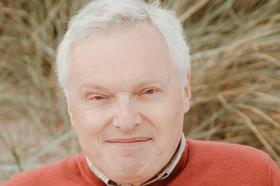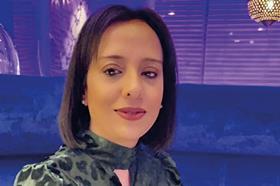A non-ministerial government of nearly 3,000 colleagues, more than 2,500 of whom are legal colleagues, we at the Government Legal Department are the government’s principal legal advisers. Not only one of the UK’s largest legal organisations, but also unique in the fact we are all part of the civil service. Since the department’s foundation in 2015, we have always ensured diversity and inclusion, and health and wellbeing are at the core of our working practices.


Supporting disability in the workplace means ensuring fairness and allowing individuals to reach their full potential. We only truly unlock this full potential when we provide the necessary support and adjustments to staff who require it. These changes are only possible if we foster an inclusive environment that encourages open conversation and breaks the silence and taboos that still surround disabilities and health conditions.
Building on the recent Law Society roundtable looking at disability in the legal workplace, we wanted to show how GLD supports good health and wellbeing, something that has been thrust to the forefront in most workplaces throughout and subsequently after the pandemic. The sudden introduction of lockdowns, significant sick absence, a rise in mental health issues generally and working with new conditions such as long Covid have required all of us to be involved in more conversations around disability.
From Cancer Support Buddies and Line Manager Confident Training, to ongoing work on accessibility and representation at all levels, GLD’s approach to disability is proactive, varied and most importantly put into practice every day. While we would love to share details of all we are doing, we will use this opportunity to talk about one of the pivotal initiatives recently introduced – the Workplace Adjustment Passport (WAP).
Introduced in 2016 as part of a renewed strategic aim for the department and wider work being carried out across the civil service, the passport allows for easier transition when changing line manager or moving to a new role or location. It has proved very helpful in starting a conversation about a disability, particularly less visible disabilities such as mental health conditions.
Available for those with a disability, health condition or undergoing gender reassignment, the WAP has three main functions:
1. to support a conversation between an employee and their line manager about the disability, health condition or gender reassignment and any workplace adjustments that might need to be made;
2. to act as a record of that conversation and of the adjustments agreed; and
3. to act as a record of any adjustment made for individuals as supportive measures.
This is a voluntary scheme for all GLD employees located in any of our offices. The requester maintains full control and ownership of the passport throughout, including the information included and with whom it is shared.
The passport has eased conversations and the support available when navigating the hybrid working arrangements which have grown in importance over recent years. Many adjustments are not necessarily physical – most are changes to a policy, or working arrangements, and some involve providing special equipment. By providing these adjustments, we are removing barriers or disadvantages that those with a disability face. We also create the conditions for individuals without a disability to work together creatively with those who do, enabling both to develop and fulfil their potential.
This collaborative and inclusive approach is paramount to ensuring the success of the passport and support of disabled colleagues, in creating a safe environment in which colleagues can feel more comfortable in sharing details of their disability. Much of this inclusive environment stems from good leadership, primarily from line managers. GLD offers various line-management training courses and guidance to support best practice when line-managing someone with a disability or someone with a WAP; everyone has access to a disability officer for further advice, support and guidance. Beyond understanding how to understand and comply with the requirements of the passport, line managers learn how to have effective one-to-one meetings with colleagues and ensure requesters have adequate official time to complete the WAP.
Passports are reviewed and updated every 12 months, so it is important for colleagues to continue the conversation around required adjustments and changes in circumstances so that, again, suitable provisions can be made.
Much of this work is carried out and implemented by HR colleagues who have strong relationships with our many diversity networks, including our Disability and Wellbeing Network. GLD also has a disability champion, Jane Hill. Jane’s role includes highlighting the importance of our networks in offering space where we can pool experience, knowledge and energy, which are collectively more immense, and can make a real difference in critically important areas. Networks are also an important source of advice (and sometimes challenge) for other directors and line managers.
It is only by working together and having systems such as the WAP in place that we can start building the foundations for improved working spaces and line management support for those with a disability or who require extra support.
Peter King is legal director at HM Treasury. Zahida Ramzan-Asghar is senior lawyer and co-chair of the GLD Disability and Wellbeing Network































No comments yet